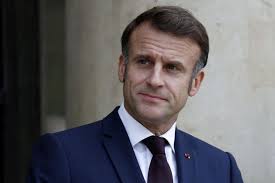The announcement of President Macron’s three-day state visit to Morocco marks a significant milestone in Franco-Moroccan relations. The Moroccan royal palace’s statement emphasizes the visit’s importance as a reflection of the “depth of bilateral relations based on a deep-rooted and solid partnership.” This diplomatic engagement comes at a crucial time, following France’s strategic realignment on the Western Sahara issue and represents a new chapter in the relationship between the two nations.
Strategic Policy Shift
France’s July decision to support Morocco’s autonomy plan for Western Sahara represents a major shift in its foreign policy stance. This alignment with Morocco’s position follows similar moves by other influential nations, including the United States and Israel, along with an increasing number of African countries. The policy change demonstrates France’s strategic recalibration in North Africa, though it has led to diplomatic tensions with Algeria, which continues to support the Polisario Front’s independence claims.
Regional Implications and Future Relations of State Visit
The upcoming visit carries significant implications for regional diplomacy and economic cooperation. Following a period of strained relations, marked by France’s 2021 decision to restrict visas for Moroccan, Algerian, and Tunisian nationals, this visit signals a deliberate effort to strengthen bilateral ties. The lifting of these restrictions and France’s explicit support for Morocco’s Western Sahara plan have paved the way for renewed cooperation between Paris and Rabat.
The timing of this visit is particularly significant as it follows a series of diplomatic developments that have reshaped France’s position in North Africa. Macron’s endorsement of Morocco’s autonomy plan as “the only solution” to the Western Sahara dispute has positioned France more clearly within the growing international consensus supporting Morocco’s territorial claims. This stance, while strengthening ties with Rabat, has predictably complicated relations with Algeria, as evidenced by the immediate recall of its ambassador to Paris.
The visit is expected to encompass discussions on various aspects of bilateral cooperation, including economic partnerships, cultural exchanges, and security collaboration. Morocco’s strategic importance as a stable partner in North Africa and its growing influence in African affairs makes this diplomatic engagement particularly valuable for France’s regional interests.
The strengthening of Franco-Moroccan relations comes at a time when both countries are seeking to expand their influence in Africa. Morocco has been actively pursuing economic and diplomatic ties across the continent, while France continues to redefine its relationship with its former colonies and maintain its influence in the region.
The visit also presents an opportunity to address ongoing challenges and explore new areas of cooperation. With Morocco’s growing role in regional security, counterterrorism efforts, and migration management, the discussions during Macron’s visit are likely to cover these crucial issues alongside traditional areas of bilateral cooperation.
As both nations work to deepen their historic partnership, the visit could mark the beginning of a new era in Franco-Moroccan relations, characterized by closer alignment on regional issues and enhanced economic cooperation. The success of this diplomatic engagement could have far-reaching implications for stability and development in North Africa and the Mediterranean region.
The upcoming state visit by President Macron to Morocco represents a significant step forward in bilateral relations, marking a new phase of cooperation between the two nations. As both countries work to strengthen their partnership, the visit’s success could set the tone for future engagement and collaboration across various sectors, while potentially influencing broader regional dynamics in North Africa and beyond.
Related News
















